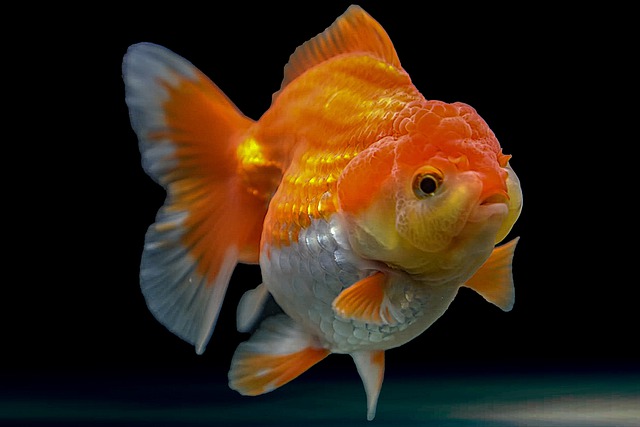Table of Contents
Do fish scales grow back
When you have a fish tank, there are many things to keep in mind. Fish are vulnerable to many diseases.
We compare animals to each other. Therefore, many people think that fish are similar to snakes when it comes shedding. Snakes definitely shed their skin. However, fish are not the same. They don’t drop their scales without reason.
Why do fish scales grow back?
It is not unusual for fish to lose scales. There can be many reasons why your fish may be losing scales. The good news, however, is that in most cases it is possible to re-grow the scales.
However, sometimes the scales can be smaller than the original. There is nothing to worry about as long as your fish is not losing their scales due to some disease.
Most of the time, fish lose their scales if they get rubbed off by sharp objects in the aquarium. Or, if you have an aggressive fish, it can cause timid fish to drop their scales.
Once you remove the aggressive fish or sharp objects from the aquarium, your problem should be resolved. Over time, your fish’s scales will grow back or repair themselves.
However, in some cases, it is possible that the scales may not grow back. If your fish has lost a lot of scales, then the scales may not regrow. The loss is mainly due to infectious protrusion disease in fish.
Proper medication for your fish is essential if it is suffering from an illness. Once your fish is healthy again, most of the scales should grow back. For this to happen, you need to make sure your fish gets proper nutrition and take care for its speedy recovery.
Can a fish live without scales?
Fish also have scales for the same reasons we humans have skin.
Secondly, scales help the fish glide smoothly through the water and play a balance in the fish body keeping it hydrated.
Mostly, fish scales are thin, light and flexible. This allows them to swim efficiently without dragging their bodies into the water. In addition, scales serve a hydrodynamic purpose, when fish are swimming, they reduce water resistance.
In addition, some scales of fish reflect light. This helps them camouflage under water. It acts as a shield of armor to protect it from predators in the wild.
Another advantage of scales is that they act as a barrier to protect the fish from harmful fungal, bacterial or parasitic infections. Scales also protect fishes from harmful objects The fish is not seriously injured due to the presence of scales.
Now that you know the importance of scales in fish, you must be wondering that can fish survive without scales?
Technically, a fish can live its entire life without scales. However, they need to avoid dangers in the water, such as predator attacks, bacterial infections, and sharp objects. Their scales help them avoid all these dangers underwater.
How long does it take for a fish to grow its scales back?
For some fish, the scales can grow back in just a few weeks. In contrast, it can take up to 3 to 4 months for other fish to grow their scales back. If the damage is high, it will take longer for the scales to grow back completely.
You will be surprised to know that some fish species do not have scales. Most of these scaleless species are bottom dwellers, such as catfish and lampreys. Swordfish also don’t need scales to survive.
Do all fish scales grow back?
All fish scales usually grow back. If your fish lose their scales due to injury or during spawning, which is normal, they will grow back.
However, if the fish’s scales fall off due to an infection, they will not grow back naturally. It would be best if you treat the underlying cause with appropriate medication. Then the scales would grow back.
Fish scales grow over time. If yes, under what circumstances?
Do Fish Shed Scales?
Fish do not shed scales under normal conditions. However, there are some instances when you may notice that your fish is shedding its scales. But they do not leave them as part of their normal development. The scales of the fish grow back as they get older.
Fish need scales to live a long life. Indeed, if nothing goes wrong with their environment, your fish will never release their scales. However, when they drop scales, there are many reasons for this.
Below are some of the common reasons for fish shedding their scales.
-
Physical injury.
The most common cause of scale shedding is physical injury. This mainly occurs during the breeding season.
When mating, both male and female fish are very active. During this time, they swim erratically and may brush up against many objects in the aquarium. In addition, during mating, fish rub their bodies against each other. This causes scale loss.
-
Injuries.
Fish can get hurt by coming into contact with hard objects in the aquarium. Aquarists often decorate their tanks with several items. While swimming, if your fish brush up on the sharp edges of objects, they may lose their scales.
To avoid this, you need to make sure that there are no sharp objects in your aquarium. More often than not, your fish will regrow their scales, and there is nothing to worry about unless they are seriously injured.
-
Infection.
Infection is yet another primary reason why fish lose their scales. This disease is serious and requires immediate medical attention. Otherwise, your fish may lose most of the scales, which can prove fatal if not treated in time.
This bacterium is found in nature. It can enter your aquarium from natural water bodies.
Scale shedding disease can be transmitted to your tank through water, plants, and gravel from infected tanks. If an infected fish is brought into your tank without quarantine, your healthy fish can become infected by transmission. In addition, another common transmission method is from fish tank equipment used in infected tanks.
Alright! Now that you know about the deadly scale shedding disease, let us understand the underlying symptoms and its treatment.
Symptoms
The primary symptoms of the disease are:
- scale shedding, and
- scale rasing.
You will find your fish healthy in the early stages of the disease. But you can see some protruding scales. Later as the disease develops, it becomes fatal. You may notice that scales begin to stick all over the body of the infected fish. This is caused by the formation of small bubbles that are filled with oozing fluid or pustules.
As a result, this leads to a loss of scale. Young infected fish may have difficulty breathing due to scale loss, pustule formation, and scale protrusion.
However, these symptoms do not always point to the disease. Occasionally, scale protrusion is caused by bacteria such as mycobacteriosis or ichthyosporidium. If you need to be sure of the exact cause of scale shedding, you need to examine the tissue and scales around it.
Treatments
To effectively treat this disease, you need to know about its presence at an early stage. Otherwise, you cannot cure your fish. If the disease is already causing huge damage, your fish can no longer be cured. But if you detect this disease early then you can treat it effectively.
This has to be done in a separate aquarium, to protect others who are still healthy.
In addition, there are some antibiotics that have proven effective against scale shedding. Any of the 3 mentioned are effective against this disease.
When you treat your fish, you should also clean the aquarium where the disease occurred. To do this, use a solution of 5 percent sulfuric acid, chloramine or hydrochloric acid. Gravel should also be disinfected. A good way to do this is to boil it to make sure all the bacteria are removed.
If you have plants in the aquarium (very likely), you’ll need to disinfect them as well. Treat them with Bicillin-5 solution.
How to help goldfish grow their scales back
As we lovely owners, it’s a wonder how we can potentially help speed up the redevelopment process and if there’s anything we can do to help?
First, you have to do what I just mentioned and keep the tank water in good condition, as well as make sure they are eating a proper diet.
Offer hiding places that are free of sharp edges so your goldfish can hide while they recover. This is probably one of the most important things you can implement as this will reduce the goldfish’s stress levels while preventing other fish from nipping at it.
This is a very simple solution, but additional plants, a rocky cave, ornament, pot, or any other type of hiding place will allow your goldfish to hide when it is feeling unsafe.
Related Questions
Do koi fish scales grow back? Yes, koi fish scales grow back. Occasionally, it may happen that the scales grow back a different color than the original ones.
Do betta fish scales grow back?
Yes, betta fish scales grow back. However, sometimes it can take longer for the scales to grow again. If your betta fish loses its scales, you need to make sure the tank water is clean. Since scale loss is not an open wound, there is nothing to worry about. However, you need to keep an eye on the loss of scale and check to see if it is due to an infection.
Do Oscar Fish Scales Grow Back?
Yes, Oscar fish scales grow back. However, they take longer to regrow their scales than other fish species such as goldfish. In addition, the regrowth of scales depends on the injury. If the injury is severe and has affected the regenerative tissue of the epidermis, there is a possibility that the scales may not regrow completely. In such cases, it is better to seek expert advice of a veterinarian.
Final thoughts on do fish scales grow back
A goldfish losing its scales is not a natural phenomenon and should be a cause for concern.
Make sure the tank water is clean, that the goldfish have a nutrient-rich diet that meets all their needs, that it doesn’t have any infections, that there is nothing sharp enough for your goldfish to grab onto its scales , and also that your other goldfish (or other fish) are not nipping on their scales.







